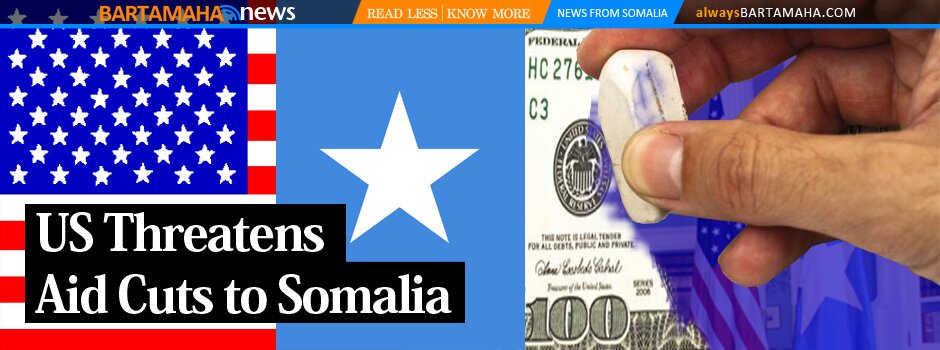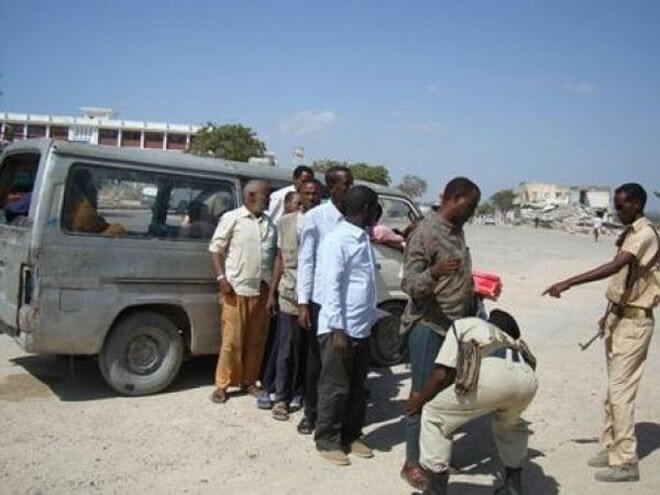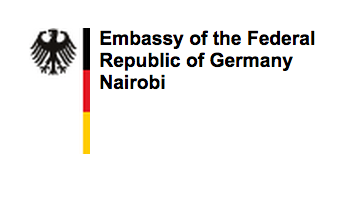Bombs rock Somalia, as brokers warn fragile progress at risk
MOGADISHU — Bomb attacks in Somalia claimed by Islamist rebels killed at least eight people including two lawmakers Tuesday, as the international community warned that “spoilers” threaten the fragile progress in the war-torn nation.
A suicide bomber killed at least six people in an attack in the central Somali town of Dhusamareb as lawmakers met with the public, while a car bomb in the anarchic capital Mogadishu killed two, the latest in a wave of violence.
“It was an attack against the enemy,” said a statement posted on a website linked to Somalia’s Al-Qaeda-allied Shebab rebels, who have launched a series of guerrilla strikes and vowed to topple the Western-backed government.
The attacks came shortly after the United Nations, African Union and East Africa’s main diplomatic body IGAD warned in a rare joint statement that efforts at establishing peace in Somalia were at risk.
The three organisations said they were “greatly concerned” at efforts to undermine a “roadmap” signed by Somalia’s disparate leaders, the latest effort to bring peace after more than two decades of war.
“The roadmap continues to be jeopardised by the actions of individuals and groups in and out of Somalia, working to undermine the fragile progress we have collectively made in recent months,” the statement read.
“We have come too far, and too much is at stake, for us to allow the process to backslide at the exact moment Somalia has its best opportunity for peace in decades.”
In Dhusamareb, witnesses said a man entered a restaurant where lawmakers were meeting with the public to discuss the setting up of a regional administration, before blowing himself up.
“The explosion hit a hotel in the town and it killed several people, many others were also injured,” said Mohamed Abudlahi Moalim, a senior commander with the Ahlu Sunna Wal Jamaa militia, which controls the area.
“The people killed are two lawmakers and four civilians… among the wounded are two other MPs,” said witness Mohamud Ibrahim.
Witnesses of the car bomb in Mogadishu said the front of the vehicle had been ripped apart by the blast.
“I was driving behind the car…there was a big explosion that rocked and twisted the car, I saw the mangled dead bodies of the two victims,” said Ali Abukar, a witness.
Somali leaders signed an agreement in September for the formation of a government by August 20 to replace the weak transitional body that has failed to bring peace, and is accused of rampant corruption.
Under the agreement, the latest among more than a dozen attempts to resolve the bloody civil war, lawmakers must agree on a system of government for Somalia’s fragmented regional — and often rival — administrations.
Somalia must also adopt a new constitution, select a new parliament and convene the national assembly.
The Shebab, who oppose the roadmap deal, have been fighting for five years to topple the government, but under pressure from African Union and government forces they have retreated from their fixed bases in the capital.
However, analysts warn that the rebels, Somalia’s most brutal, still remain a serious threat to international efforts aimed at stabilising the war-torn country.
The UN, AU and IGAD — the Inter-Governmental Authority on Development — said their statement was a “warning and a final opportunity” for those standing against peace.
The “unambiguous warning to all potential spoilers” did not specifically name any people or groups, but said non-compliance with the order would result in requests for sanctions from IGAD nations, or from the UN Security Council.
The trio would take “concrete action” in coming weeks if it continued.
__
AP
Comments
comments
 Calendar
Calendar







































